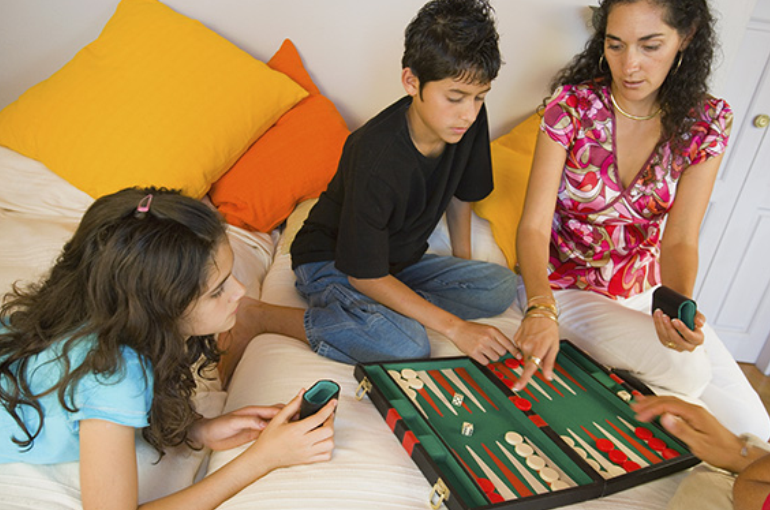Can Your Family Have Screen-Free Time?

There isn't a lot of screen-free time these days. In today's world of technology and social media, the amount of time children spend on computers, phones, video games and TV is four to six hours per day. Teens spend up to nine hours per day. This time doesn't include the need for computers for schoolwork. The American Academy of Pediatrics recommends two hours or less of daily recreational screen time. Research shows that children as young as 6 months old become familiar with digital devices. In fact, children spend more time sitting in front of electronic screens than doing any other activity besides sleeping.
- This excessive screen time can be a detriment to a child's physical activity, school performance, and social and emotional well-being.
- Many times, adults are just as bad. Between work, family, and friends, the time spent in front of a screen is excessive, and actual one-on-one quality time spent with their family members is nominal.
Ready for a Screen-Free Challenge?
Let's get back to the days of old and go screen-free! Remember when you read actual books, not e-readers? Only had phones attached to cords? Did research with encyclopedias? Played board games? Ahh, the good ol' days.
Do you think your family could go back in time and go screen-free? We challenge you and your family to try to go screen-free for a week. Print out these great screen-free activities for fun ideas your whole family can do together. Here are a few to get you started:
- Learn about a different culture; cook an international meal.
- Play checkers, cards or other favorite board games.
- Make homemade cards; send to family and friends.
- Listen to the radio; learn the lyrics to your favorite song.
- Check out the night sky; learn about planets, constellations and the northern lights.
You can also build an interactive family media plan: AAP Media Plan
Note: The content of this blog is for informational purposes only. It is not intended for use as diagnosis or treatment of a health problem or as a substitute for the professional consultation of a physician or qualified health care provider. If you have specific questions or concerns regarding a health or medical condition, contact your physician or a licensed health care professional.




